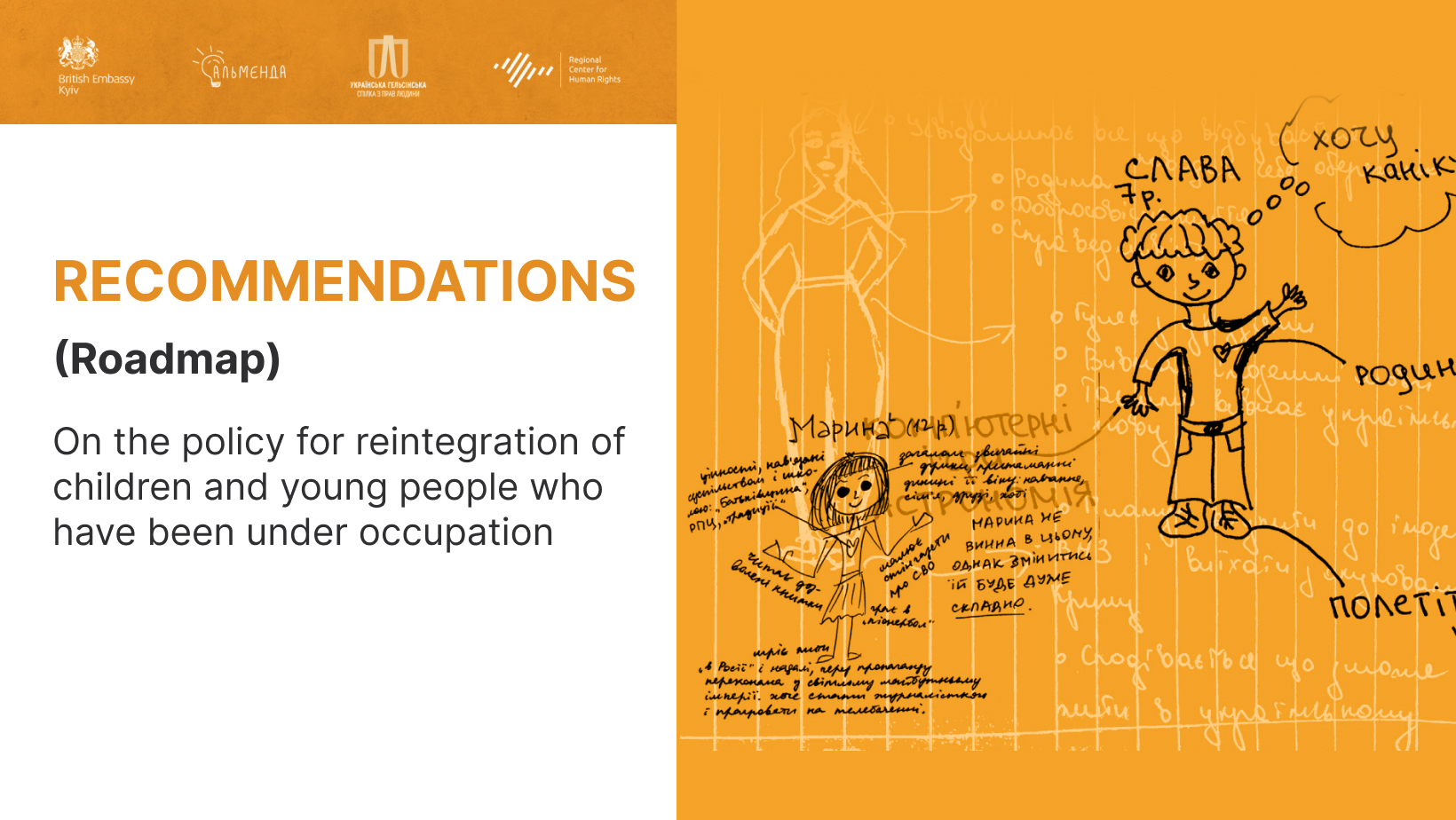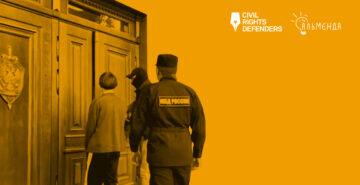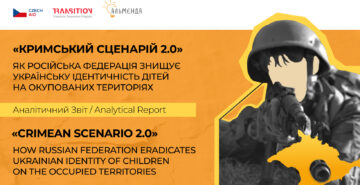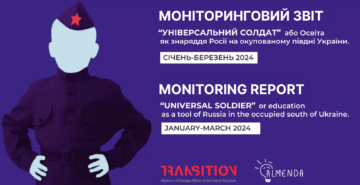

Recommendations (Roadmap) On the policy for reintegration of children and young people who have been under occupation
The armed aggression of the Russian Federation against Ukraine has resulted in the temporary occupation of a part of its territory. Currently, almost 18 % of Ukrainian territory is controlled by the occupying power.
As of 2024, almost 1 million Ukrainian children have become hostages of the occupying state (data taken from official sources of the occupation administration of the Russian Federation and reports of Ukrainian authorities?).
Due to the ongoing temporary occupation, which has been lasting already for 10 years, Ukrainian education has sustained irreversible changes. The education has been completely ruined on the Crimean Peninsula and on the temporarily occupied territories of Ukraine, which form part of the Donetsk and Luhansk regions. Since 2022, it has also being dismantled on the temporarily occupied territories of Ukraine within the Zaporizhzhia and Kherson regions. Children living on these temporarily occupied territories have become subjects of the “Russian state re-education.” This “re-education” takes place within the Russian educational environment, where children are compelled to study according to the Russian standards, curricula and educational materials. Additionally, there is an extensive Russian system of “patriotic education” in place, aimed at shaping Russian civic identity, instilling Russian traditional values, militarizing the consciousness, and fostering a loyal attitude towards military actions carried out by Russia in Ukraine.
The provisions of international humanitarian law and international human rights law underline the unlawfulness of such actions of the Russian Federation.
Although the international law imposes a broad range of obligations on the occupying state, it does not absolve the sovereign state of responsibility. This includes its non-exemption from obligations to ensure accessibility to education for all citizens, as set forth in Article 39 of the UN Convention on the Rights of the Child.
That is why the issue of reintegrating children and young people who have been under occupation should remain a constant focus for both the government and society. All government policies regarding children and young people who have experienced the occupation should be implemented in an environment which fosters the health, self-respect and dignity of the child.
The Ukrainian authorities, civil society organizations and international partners are actively seeking ways to restore justice and prosecute those responsible. However, the unlawful practices of the Russian Federation towards Ukrainian education pose new challenges for the reintegration of a new generation of children raised in complete loyalty and willingness to serve in the Russian armed forces.
These Recommendations are based on the analysis of successful and unsuccessful policies for the reintegration of children and young people in countries that have confronted the consequences of wars and internal conflicts. They also include assessments of the relevance of these policies for overcoming the aftermath of the Russian-Ukrainian war in the Ukrainian context.
These Recommendations also take account of the results of discussions with representatives of Ukrainian student community, particularly young people from temporarily occupied territories who have moved to the territories under Ukrainian control having lived under occupation for various durations.
An efficient policy for the reintegration of children and young people who have been under occupation will contribute significantly to achieving the lasting peace.
Ukraine’s experience should serve as an example to encourage the international community to further develop the appropriate mechanisms to protect children from ideological influence, and address the consequences of such influence not only during armed conflict, but also during peacetime.
The publication of this material was made possible with the financial support of the UK Government as part of the project “The Way Forward: Laying the Foundations for a Shared Future”, implemented by the CCE “Almenda”. The views expressed in this publication are those of the authors and do not necessarily reflect the official position of the UK Government.



